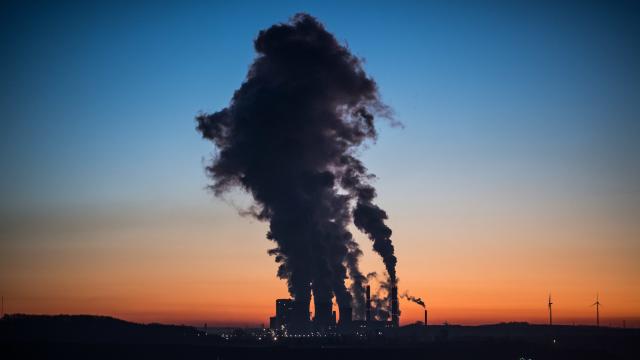Air pollution is expensive. Like, really freaking expensive. That’s why it’s worthwhile to keep our air clean. A study out recently has found that reduced air pollution levels between 1993 and 2013 saved the U.S some $US24 ($36) billion a year looking only the benefits to elderly people and early deaths related to the air they breathe.
The study published in the American Economic Review last month looked at how efforts to reduce air pollution from 1993 to 2013 in the U.S. reduced the number of elderly deaths. This is the first study to examine the short-term impacts of particulate matter at this level. The findings rely on about 40 billion data points, including daily pollution exposure for tens of millions of elderly people.
Air pollution does not impact us all equally. For the older among us, even low levels of air pollution may increase their risk of death. That’s especially true for black and low-income elderly people. And if we’re being real, people of colour generally deal with an unfair amount of air pollution risk.
[referenced url=” thumb=” title=” excerpt=”]
That also means cleaning up air pollution can have huge benefits for those people, particularly Medicare beneficiaries. To reach their conclusions, the team of scientists pulled county-level air quality data from the Environmental Protection Agency with a focus on particulate matter, as well as wind direction. They then coupled this data with the mortality rates and detailed medical history of Medicare beneficiaries that live in these counties to create a model showing how many years individuals within this population have lost to short-term decreases in air quality.
The findings on short-term air pollution paint a pretty optimistic picture about the very real benefits of addressing air pollution. It can save lives. And over the period of study, air pollution decreased. That saved money on elderly hospital visits and reduced the drag on the economy. The scientists use the value of $US100,000 ($147,961) per every year of life; that’s how they arrived at $US24 ($36) billion annual benefits of saving lives.
But the study also shows the toll air pollution continues to take on the elderly. Even during years where air pollution decreased, the study findings show that 25 per cent of Medicare recipients still lose years off their life due to the short-term pollution spikes they experience. For instance, people with a life expectancy of less than a year (unrelated to the poor air quality) are more than 30 times more likely to die from air pollution than the typical Medicare beneficiary, whose life expectancy is 11 years. The cynical among us may not bat an eye for anyone who may die within the year, but for those people and their families, every day matters. Poor air quality has robbed these individuals of time they’d otherwise have. On top of that, people living with lung cancer and Alzheimer’s or dementia are even more vulnerable to air pollution impacts.
“One of the main ways in which we differ from previous studies of air pollution is that we rigorously estimate the counterfactual life expectancy of individuals who are killed by acute pollution exposure,” co-author Tatyana Deryugina, an assistant professor of finance at the University of Illinois at Urbana-Champaign, wrote in an email to Earther. “This is extremely important for understanding the costs of air pollution – society is likely to be willing to expend more resources saving the life of someone who would have lived for 10 years otherwise compared to someone who would have lived for only 10 more days.”
One limitation of this study is that it fails to examine the long-term impact of this air pollution. It also doesn’t cover recent years where air pollution in the U.S. is increasing or the threats Trump’s deregulatory agenda posses to our youngest and our oldest. As this study shows, the elderly have a lot more to lose than we previously thought.
